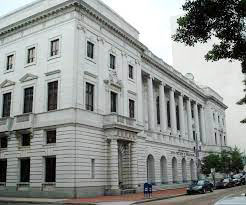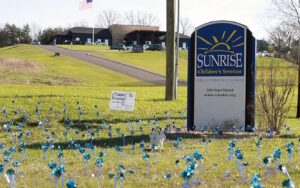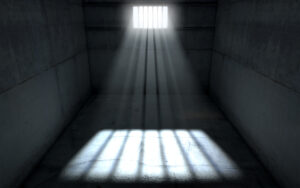
BALTIMORE (BP) — Southern Baptist pastor Ryan Palmer is confident he’ll save his historic Seventh Metro Church from a developer attempting to buy the property for pennies on the dollar through a city auction.
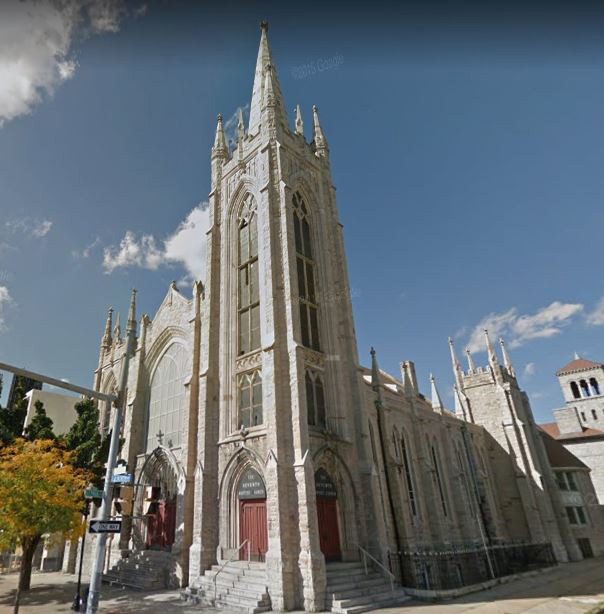 Seventh Metro has historical significance as the site of Southern Baptist missionary Annie Armstrong’s baptism in 1869, the church includes in its written history. The late missionary is the namesake of the North American Mission Board’s annual Annie Armstrong Easter Offering.
Seventh Metro has historical significance as the site of Southern Baptist missionary Annie Armstrong’s baptism in 1869, the church includes in its written history. The late missionary is the namesake of the North American Mission Board’s annual Annie Armstrong Easter Offering.
The City of Baltimore auctioned the church in 2016 through a contested system that allows the city to place tax liens on homes and businesses — including tax-exempt churches — to recover outstanding water bills.
At issue for Seventh Metro are a $6,000 water bill and the tax lien auction procedure, both of which Palmer is contesting. The bivocational pastor and practicing attorney told Baptist Press the water bill has accumulated due to leaky pipes, and said the tax lien system is against the law.
“It is uncognizable that 20 people could incur a $6,000 water bill meeting two hours a week on 52 Sundays and midweek Bible study,” Palmer told BP. “We are not only contesting the water bill, but we are also contesting the unlawful practice that is going on here in Baltimore.
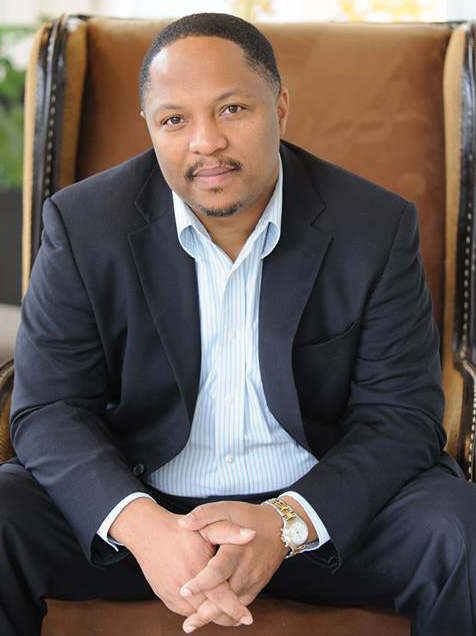 “According to the IRS Code, a church is treated as a tax exempt entity,” Palmer said. “A water bill is not a tax. An environmental citation is not a tax. Therefore, it should be unlawful to convert a water bill or a citation into a tax lien and use the tax to take property from a nontaxable entity.”
“According to the IRS Code, a church is treated as a tax exempt entity,” Palmer said. “A water bill is not a tax. An environmental citation is not a tax. Therefore, it should be unlawful to convert a water bill or a citation into a tax lien and use the tax to take property from a nontaxable entity.”
In the meantime, a California developer identified as Christopher Bryan has already bought the debt, and has bid $53,000 on the property assessed at $1.4 million, the Baltimore Sun reported in May. Palmer is determined for the congregation to retain the property, commonly referred to as “Annie’s Church.” It was constructed in 1845 and rebuilt after a 1919 fire.
“Truthfully,” Palmer told BP, “we have every confidence that we will be able to redeem the property.”
Palmer is working through public and governmental channels to raise funds, and said June 30 he was only $3,000 away from the money he needs to satisfy the $6,000 debt, plus potential interest and legal fees. He has established a GoFundMe page, is accepting direct gifts, and hopes to raise an additional $11,500 to repair leaky pipes and subsequent water damage.
“We are actively seeking public dollars and grants to assist us in our mission,” Palmer said. “Please keep us in prayer.”
Seventh Metro is one of several churches the City of Baltimore has auctioned for unpaid bills, the Baltimore Sun reported May 27. In the past three years the same California developer, Bryan, has purchased liens on at least 26 predominantly African American churches through the city’s annual tax auction, the Sun said. In May, Bryan was pursuing foreclosure on at least six churches, and had already taken ownership of one, the newspaper said.
Various property owners, city council members and state legislators have criticized the tax lien system as unfair, the Sun reported. The water billing system itself is problematic, according to Baltimore-area news reports as early as five years ago.
After an audit revealed widespread billing errors, the city announced plans to issue $4.2 million in refunds to 38,000 water customers, CBS Baltimore reported in March, 2012. At that time, 2,300 property owners were at risk of losing their homes, the CBS affiliate said. The city reportedly revamped its billing system, installed digital meters and increased the number of meter readers, but complaints have continued.
In a June 23 editorial in the Baltimore Sun, Maryland Delegate Mary L. Washington urged the city to discontinue water bill tax sales and establish a water affordability program. While related bills Washington introduced in the most recent legislative session failed, legislators created a Task Force on Tax Sales to examine the current system and create statewide reforms.
“Pushed by investors, laws have been created that have morphed tax sales into a predatory system of debt collection where $350 water bill delinquencies turn into $5,500 debts or more,” Washington wrote. “The most recent announcement by the city that rates will increase again this summer is especially disturbing.”
Palmer is working with legislators, churches and organizations to contest the water-bill-based tax sales, he told BP.
He began leading Seventh Metro in 2003 when its membership had dwindled to 17. Membership rose to 50 early in his pastorate, but has fallen again as he struggles without support staff to minister to the community.
Amid the tax lien controversy, Palmer continues to explore new avenues to make the church more relevant, and to utilize the church campus he describes as “in amazing condition.”
“Although there are occasional leaks in our aging slate roof, the bricks and mortar are outstanding,” Palmer told BP. “We are turning our attention to the partnering and programming that need to take place after we redeem the property.”
He has assembled a team of community representatives outside the church membership to advise him on using the campus to meet the needs of college students, artists and professionals. He’s planning a Centre City Arts Academy in cooperation with numerous groups including, he said, the Central Baltimore Partnership, the Jubilee Baltimore neighborhood development group, Johns Hopkins University, the Maryland Institute College of Art, and the University of Baltimore.
“Johns Hopkins University and The Maryland Institute College of Arts are in talks to resource the film and sound component,” Palmer said. “We are exploring local theatre companies to assist us with the box office, stage and theater training. Baltimore City’s Chapter of Youth with a Mission are exploring their partnership with us and bringing in artists from across the world to teach. We already have a very strong writing component. It’s really exciting!”




